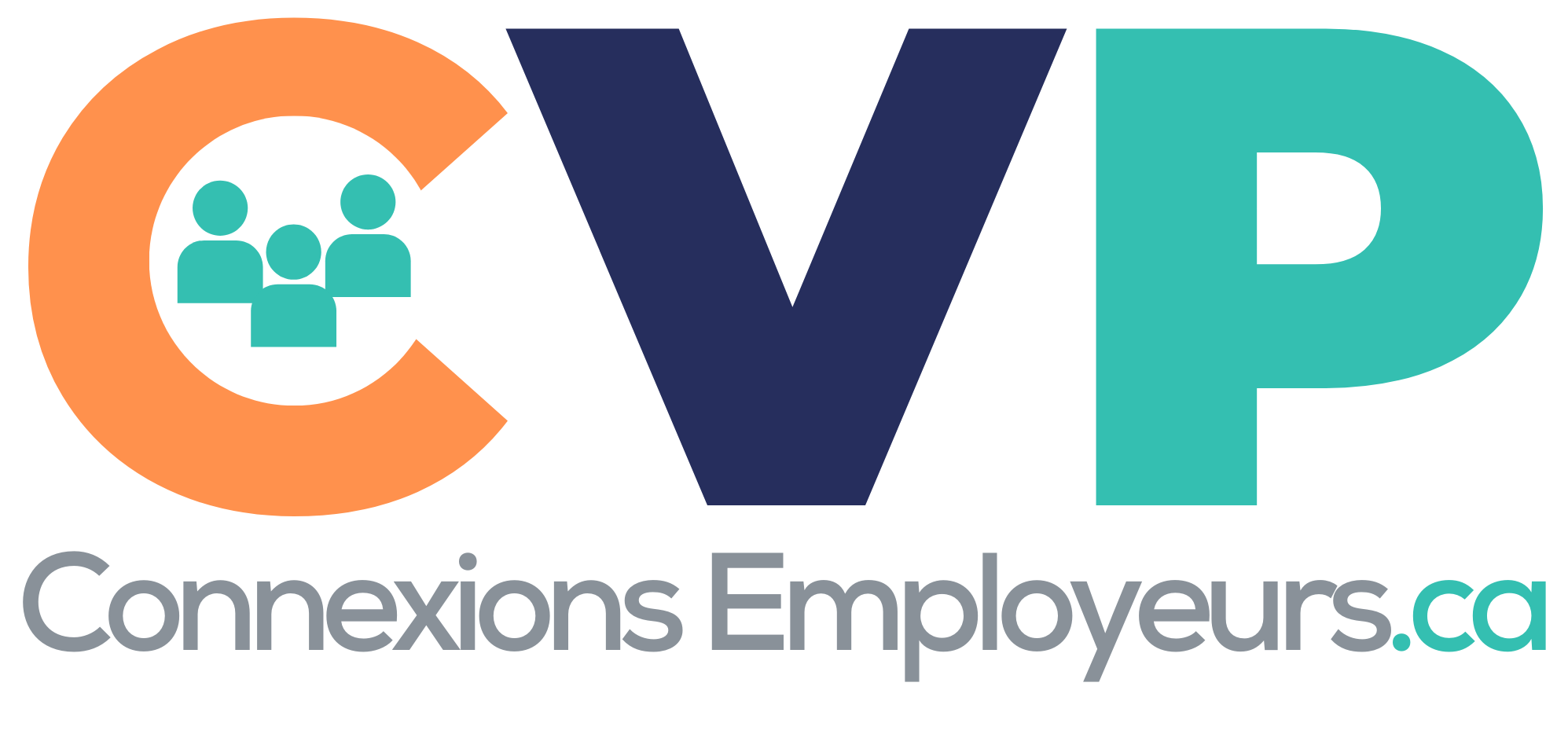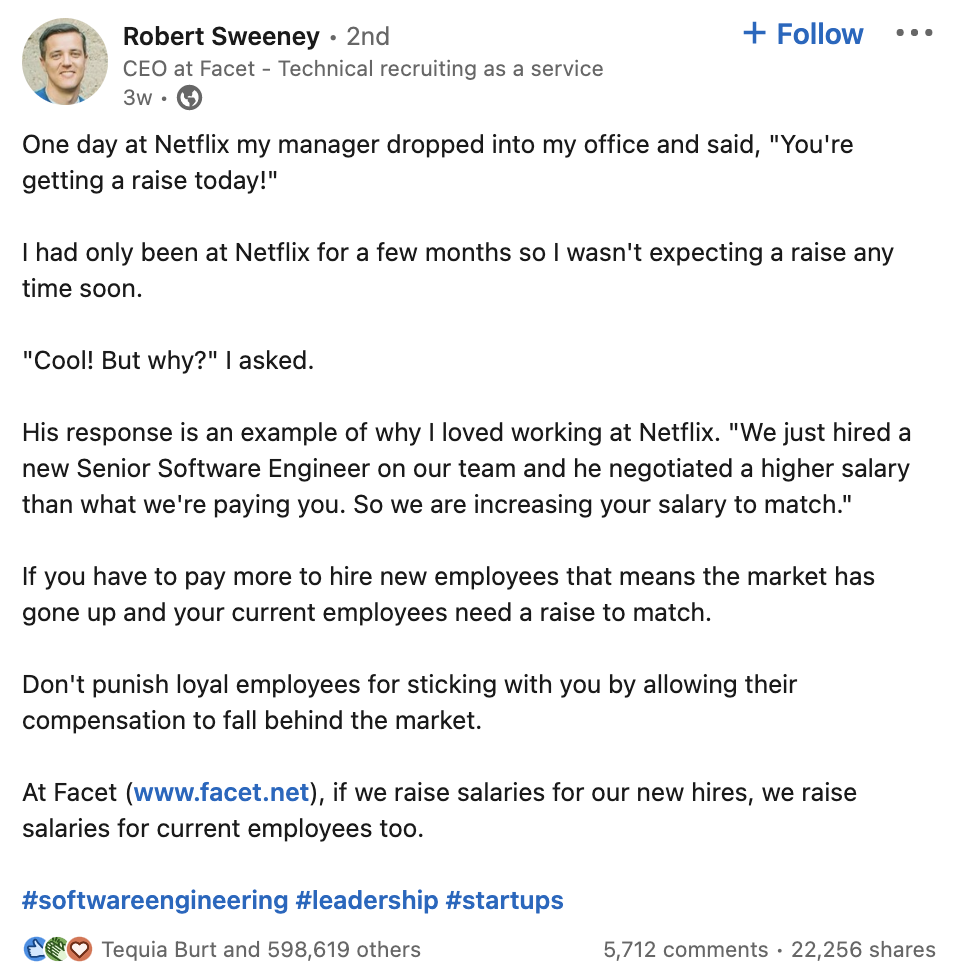Of Course You’ll Pay Well for New Talent. But What About Your Current Talent?

Robert Sweeney, CEO and founder of technical recruiting firm Facet, told a story on LinkedIn recently about when he was a software engineer at Netflix. One day his boss marched into his office and informed him that he was giving him a raise. He’d been on the job only a few months.
“Cool!” Robert said. “But why?”
Because, he was told, the company brought in another engineer who negotiated a higher salary and they wanted to match it.
If this sounds like a fairy tale that’s too good to be true, that’s because it usually is.
Research shows that incumbent employees are falling behind new hires
A new study by compensation data provider LaborIQ surveyed 20,000 different job titles and found that salaries for new hires are, on average, 7% higher than what current employees earn in similar positions. For in-demand jobs in tech and finance, the pay gap can stretch to as much as 20%.
Call it a loyalty tax or a penalty for staying put, but one thing’s for sure: It can feel like a slap in the face to anyone who’s stuck with an employer through the highs and lows of the past few years.
“Don’t punish loyal employees for sticking with you by allowing their compensation to fall behind the market,” Robert says in his post. More than half a million people gave it a thumbs-up.
“We’ve noticed for some time that incumbent employees are being punished in their paycheck for being incumbent employees,” says Stefan Gaertner, partner at Aon’s Human Capital Solutions. “If you’re an incumbent employee, you make 10 percent to 15 percent less than new hires.”
Pour lire la suite de l’article, cliquez ici.
Source: 


Réponses